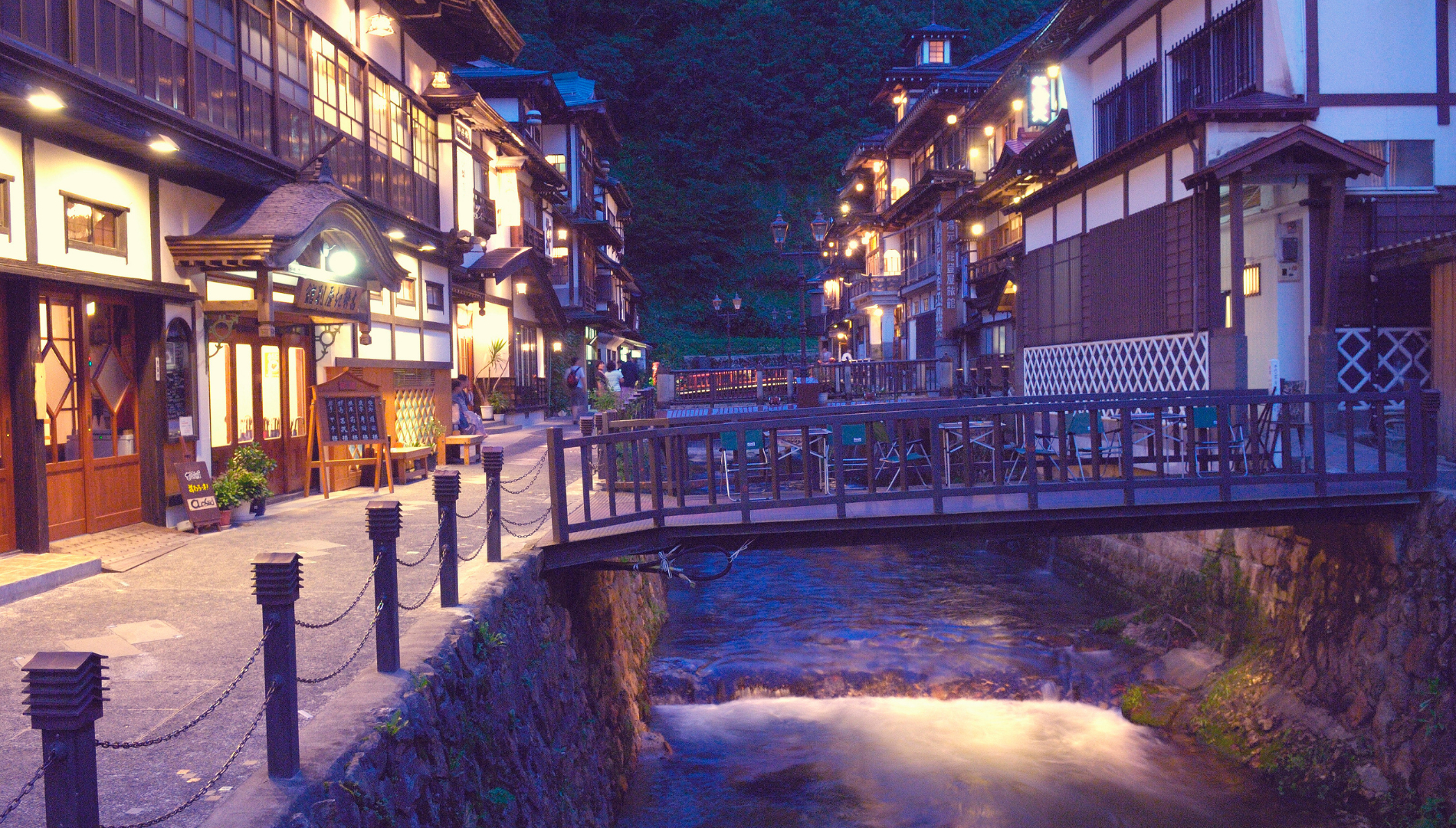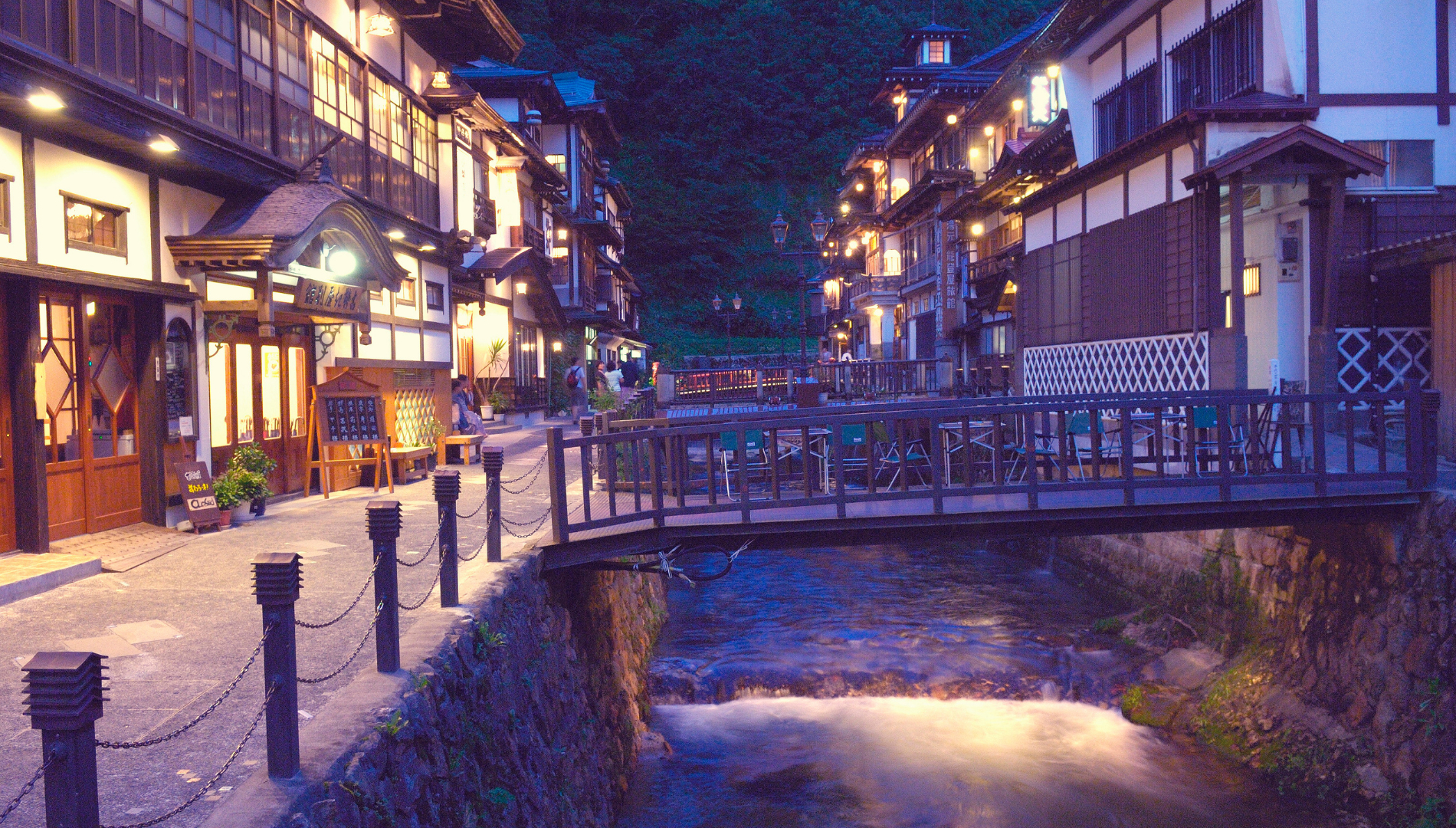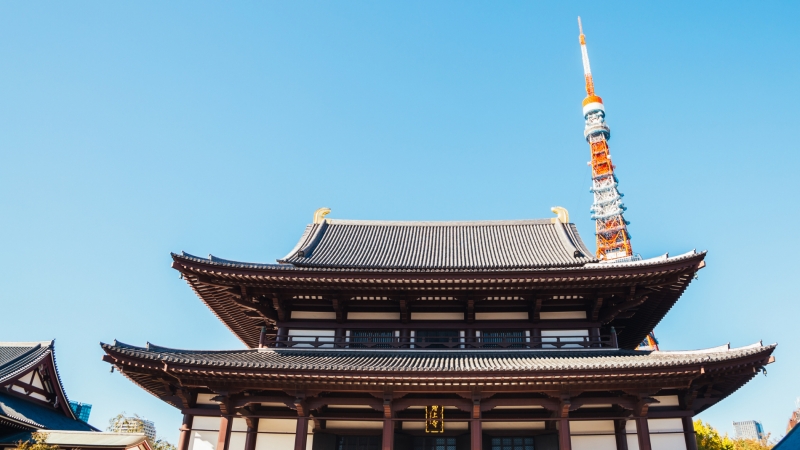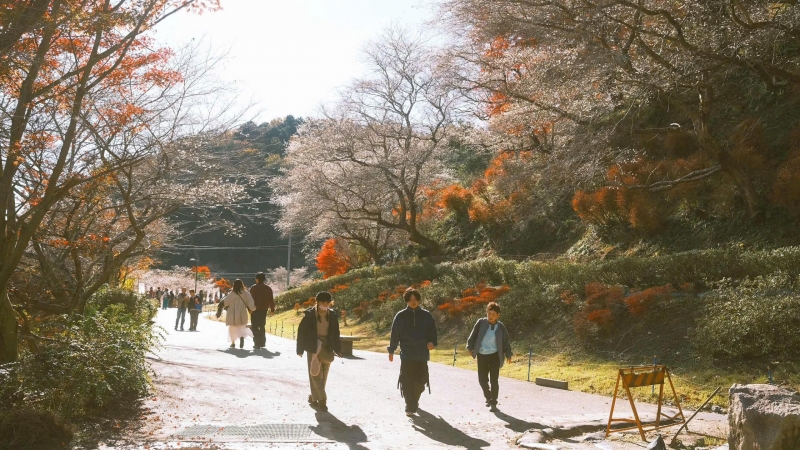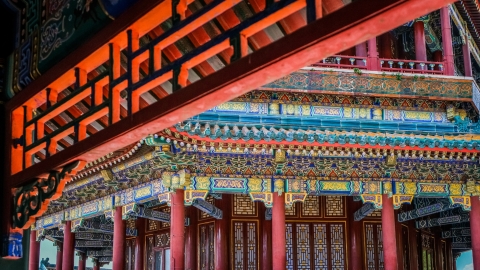Nestled amidst the majestic mountains of Yamagata Prefecture, approximately 420 km north of Tokyo, the hot spring town of Ginzan Onsen is a hidden gem, attracting hundreds of thousands of visitors each year. With its unique traditional wooden houses, cobblestone streets, and the tranquil, gently flowing Ginzan River, Ginzan Onsen offers an unusually serene and ancient beauty. Especially in winter, when the town is blanketed in snow, it becomes even more enchanting, like a vibrant ink painting.
Established in the 17th century, Ginzan Onsen is not only famous for its hot springs but also for its rich history. The name "Ginzan" means "silver mountain," stemming from the discovery of a silver mine in the area in 1456. At Ginzan Onsen, visitors can relax in the warm onsen baths and explore traditional Japanese culture. The quaint wooden houses, local festivals, and local specialties will provide unforgettable experiences.
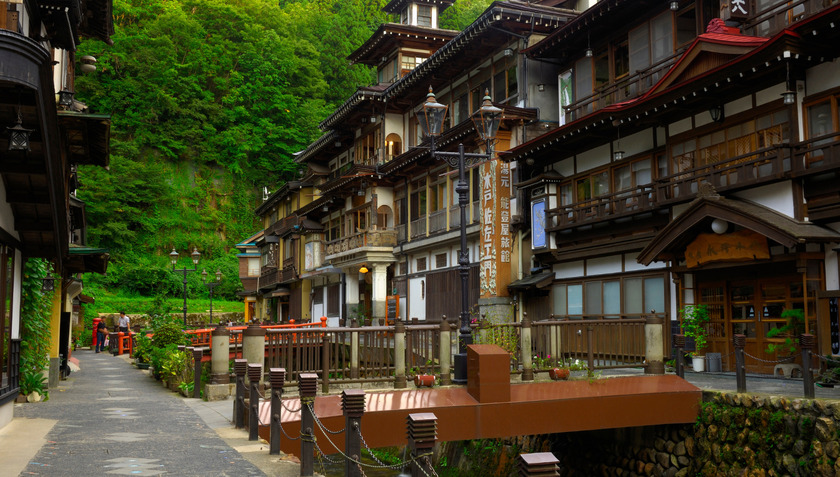
Ginzan Onsen, a hot spring town, is a gem of Japan with its ancient architecture and picturesque scenery.
The ancient Edo-era wooden houses at Ginzan Onsen are not only a valuable architectural heritage but also an endless source of inspiration for artists. The enchanting, fairytale-like beauty of these houses led renowned director Hayao Miyazaki to choose Ginzan Onsen as one of the inspirations for his animated film "Spirited Away," a work that has captivated millions of viewers worldwide.
However, Ginzan Onsen's growing popularity has also brought about undesirable consequences. The increasing number of tourists has turned the once peaceful town into a noisy and chaotic place. The noise, litter, and invasion of privacy have caused many residents to feel stressed and exhausted. There have even been reports of inconsiderate tourists littering, damaging the landscape, and causing public disorder.
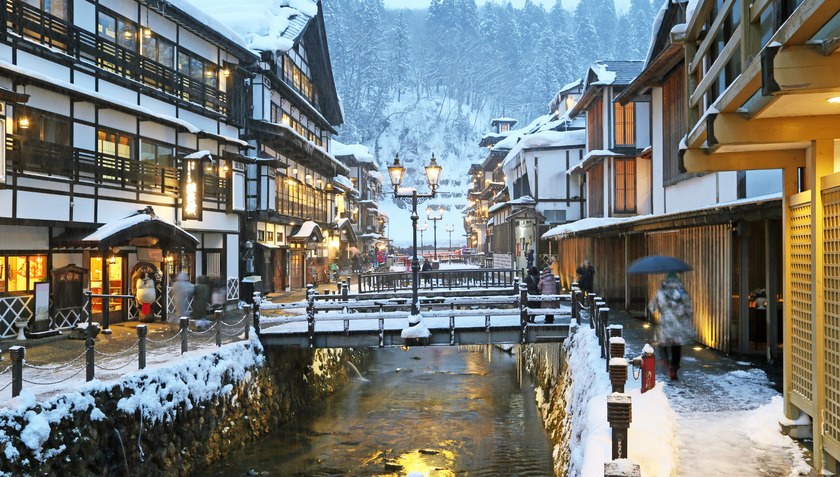
This town faces many challenges, the most prominent of which is overcrowding, especially during peak seasons.
"We are very grateful for the love that visitors have shown for Ginzan Onsen, but we also hope that visitors can respect the local culture and work together to protect the town's inherent beauty," a local government representative shared.
According to the Ginzan Hot Spring Information Center, starting January 7, 2025, those wishing to enter the hot spring town after 5 p.m. will have to purchase a ticket. Visitors without reservations at local hotels will not be able to stay after 8 p.m. The ticket price, including bus fare, is 1,150 yen (approximately $7 USD).
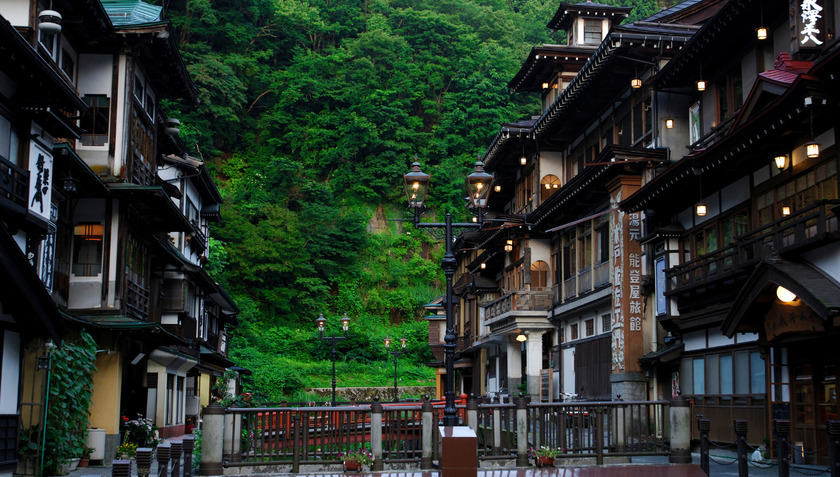
These things have seriously affected the lives of local people and detracted from the town's natural beauty.
Those driving their own cars will have to park at a nearby tourist center and take a shuttle bus to get into town. Hiroyuki Ishii, from the Ginzan Onsen Anti-Overtourism Project Office, told CNN that many self-driving day trip tourists often get stuck on snow-covered roads, causing traffic jams and hindering ambulance access.
"The photo-taking area is narrow, and sometimes tourists argue with each other, telling each other to get out of the way. There were times when they bumped into each other and almost fell into the river," Hiroyuki added. Ginzan Onsen is one of Japan's popular tourist destinations that has regulations limiting the number of visitors amidst a surge in numbers in recent months.

 VI
VI EN
EN



